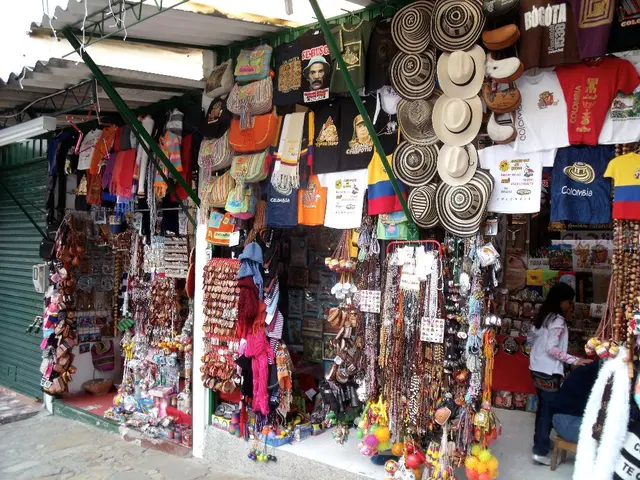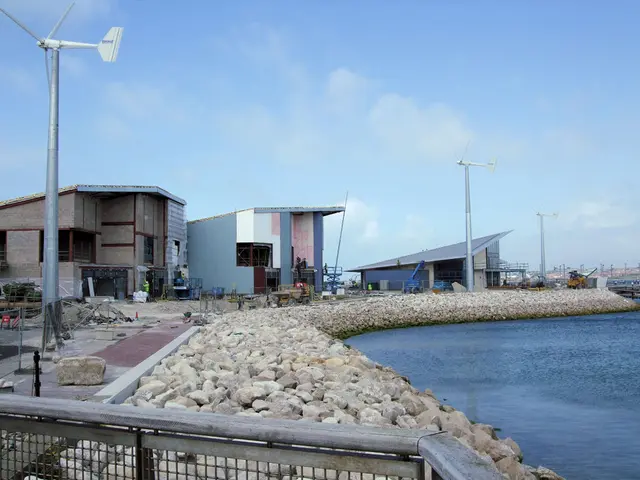Breather for Car Manufacturers: EU Eases CO2 Emission Limits Temporarily
Expected determination on reducing carbon dioxide restrictions for automobiles set for Thursday - Relaxation of Car CO2 Emission Standards Set for Thursday Decision
Woo-hoo! It's party time for the carmakers! The European Union (EU) is giving them a break, extending some leniency on CO2 emission limits for their 2022 vehicles. They'll now have the option to offset these emissions with values from 2023 and 2024. That means, if they miss the limits in 2022, they've still got 2026 and 2027 to make up for it!
This relaxation is all about the so-called fleet limits—the maximum average CO2 emissions allowed for new cars sold by a manufacturer. Each carmaker has an individual value for this limit, which decreases every year and is set to hit zero by 2035, effectively phasing out new internal combustion engine cars.
Big names like Volkswagen and Renault have been struggling to meet these tightened emission standards. So, they’ve been lobbying pretty hard in Brussels, fearing fines for not meeting EU targets.
But that's not all! The law already provides a way for manufacturers to avoid fines: they can form 'pools' with competitors, where an average limit applies to the group instead of each individual company.
Before the vote on Thursday, the European Parliament could propose additional changes. They could even challenge the combustion engine phase-out, a proposal that conservative and far-right politicians are pushing for. However, this would require intense negotiations with the 27 EU governments.
By the end of the year, there will be a fundamental review of the law. The new German government could face disputes over the combustion engine phase-out. The SPD wants to stick to it, while the other side has only agreed on a general formulation in the coalition contract.
AutoEuropean ParliamentEUStrasbourgUrsula von der Leyen
Enrichment Data:The recent relaxation represents a significant win for automakers as it effectively eases the stringency of the CO2 limits in the near term. This adjustment provides more flexibility for manufacturers in managing their fleet emissions, reducing the risk of penalties for non-compliance in any single year. The relief aligns with moves seen in countries like Germany, where regulatory relief is a priority amidst industrial pressures and competition from Chinese automakers, high manufacturing costs, and demand fluctuations for electric vehicles (EVs). The relaxation, however, is not a rollback but a pragmatic approach to meet environmental goals without derailing the automotive sector’s competitiveness or leading to job losses.
- The relaxation of CO2 emission limits by the European Union (EU) could play a significant role in scientific research regarding energy policy, as it provides more flexibility for car manufacturers in managing their fleet emissions.
- As climate-change becomes a growing concern, the energy policy of EC countries, particularly in the automotive industry, is under intense scrutiny in environmental-science circles.
- Finance and investment decisions in the automotive industry are heavily influenced by policy-and-legislation changes, with the recent EU decision on CO2 emission limits being a key factor.
- Transportation, specifically the transition from traditional internal combustion engine cars to cleaner alternatives, is a hot topic in politics, with threats to challenge the combustion engine phase-out being proposed by conservative and far-right politicians.
- The general news is abuzz with discussions regarding the EU's decision to ease CO2 emission limits, given its potential impact on various industries and the broader environmental landscape, particularly in light of ongoing negotiations and reviews scheduled for later this year.








